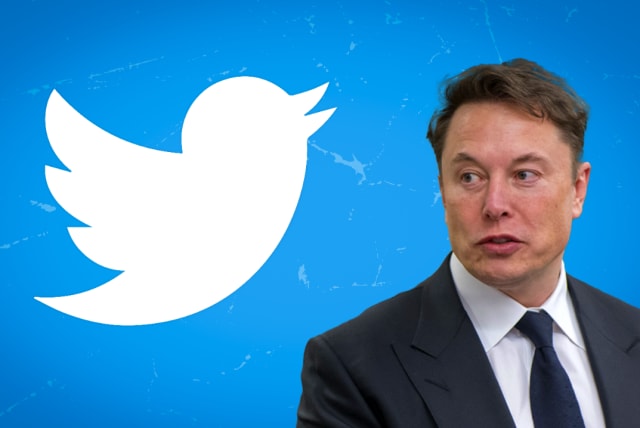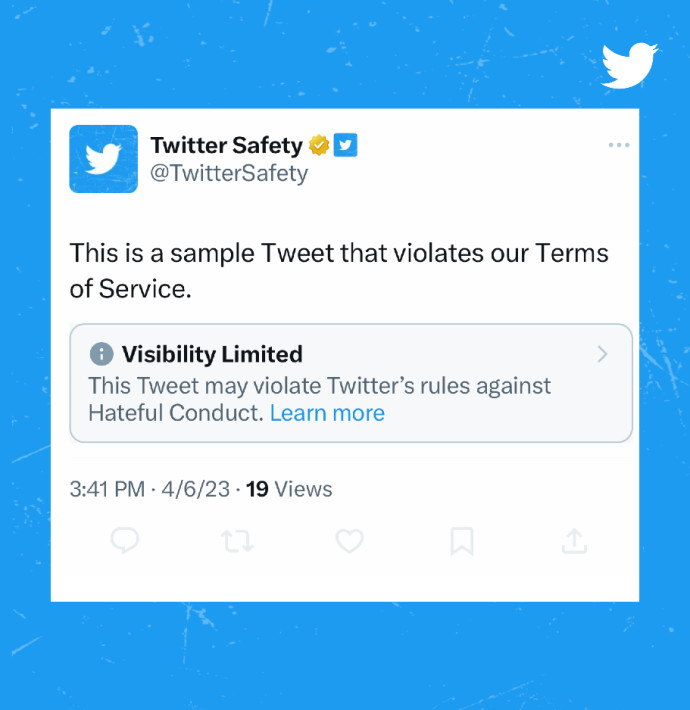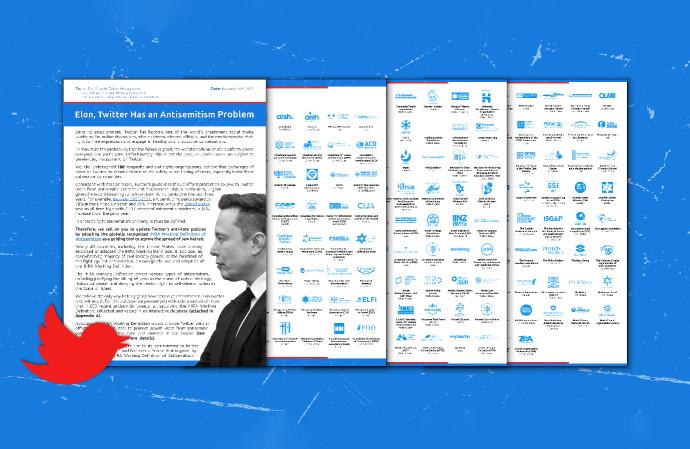Musk takes an important step toward combatting antisemitism, hopefully not the last - Opinion

With the announcement this week of Twitter’s new policy of confronting hate, they took an important step toward protecting groups and individuals who have been targeted online.
As Twitter tries to balance freedom of expression and Elon Musk’s commitment to being a “modern town square,” with its responsibility to maintain a safe place for the exchange of ideas, the social media giant cannot ignore the hateful conduct that finds its way to its platform.
With the announcement this week of Twitter’s new policy of confronting hate, Twitter took an important step toward protecting groups and individuals who have been targeted online by abuse and harassment.
As a staunch supporter of Israel, I have seen firsthand what it looks like to be targeted by bigots and Jew haters online. Sometimes it’s very obvious and overtly antisemitic, but other times it’s in the guise of symbolism, or a dog whistle meant to be provocative to gain the attention of other haters. While on occasion, the level of vitriol is so egregious it cannot be ignored, most of us don’t have the time or energy to spend all day reporting hateful content.
According to Twitter, the new policy will add visible labels to tweets that have been identified as violating their conduct policies and, in some instances, will lessen their visibility so that fewer users see the post.
The new policy outlines a range of enforcement options, including making content less visible, excluding tweets and accounts in email or in-product recommendations, requiring tweet removal, and even suspending accounts that violate the policy.
While it is commendable that Twitter is taking this step to make its platform safer for all users, it’s not enough.
Last fall, my organization was among the 180 nonprofit organizations from around the world that urged Elon Musk and Twitter to take a strong stance against online abuse by adopting the International Holocaust Remembrance Alliance’s (IHRA) working definition of antisemitism. Along with this request, we also pushed Twitter to add a warning, similar to what they are now implementing with the new policy, to caution other users of harmful content or other misinformation.
Although Twitter has not yet adopted the International Holocaust Remembrance Alliance’s (IHRA) working definition, its Hateful Conduct policy does incorporate several components that align with the IHRA’s examples of antisemitism.
Twitter’s policy prohibits “targeting individuals or groups with content that references forms of violence or violent events where a protected category was the primary target or victims, where the intent is to harass,” specifically mentioning the Holocaust.
Though Twitter’s new labels and deboosting policy are a welcome change, they still fall short. The policy does not mention Holocaust denial, nor does it address more nuanced Jew-hatred disguised as opposition to Israel or Zionism. Given the surge of Holocaust denial and distortion on social media that contributes to the spread of antisemitic conspiracy theories and the erasure of historical fact, these should be incorporated into Twitter’s new moderation policy.
It is clear that if Twitter is fully committed to transparency and reducing hateful content, then it must take additional steps.
In addition to adopting the IHRA’s working definition, Twitter must also invest more resources into detecting and removing antisemitic content. While Twitter’s new policy outlines a range of enforcement options, it is unclear how the company plans to detect and identify tweets that violate its policy.
Twitter can also collaborate with civil society organizations to combat antisemitism and Jew hatred on the platform. Organizations like Med Israel for fred, the Simon Wiesenthal Center, StandWithUs, the ADL, WJC, AJC, Stop Antisemitism, CyberWell, and many others have extensive knowledge and expertise in combating antisemitism and can provide valuable insight into how Twitter can improve its policies and enforcement. Twitter should engage in regular dialogue with these organizations and listen to their feedback on how to improve its policies and enforcement.
Overall, Twitter’s new policy is a positive step in the right direction in combatting hate speech and antisemitism, but the road is long, and more must be done.
Conrad Myrland is the CEO of Med Israel for fred (MIFF, With Israel for peace), a pro-Israel group in Norway. MIFF is also active in Sweden, Denmark and Iceland.
Jerusalem Post Store
`; document.getElementById("linkPremium").innerHTML = cont; var divWithLink = document.getElementById("premium-link"); if (divWithLink !== null && divWithLink !== 'undefined') { divWithLink.style.border = "solid 1px #cb0f3e"; divWithLink.style.textAlign = "center"; divWithLink.style.marginBottom = "15px"; divWithLink.style.marginTop = "15px"; divWithLink.style.width = "100%"; divWithLink.style.backgroundColor = "#122952"; divWithLink.style.color = "#ffffff"; divWithLink.style.lineHeight = "1.5"; } } (function (v, i) { });


